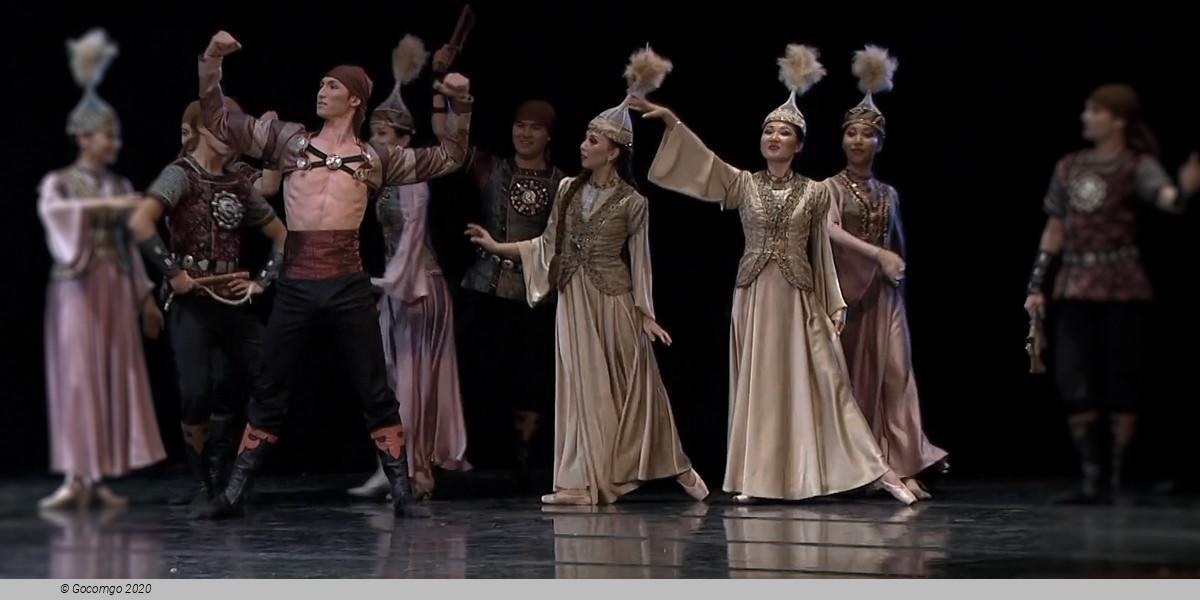Abay Kazakh State Opera and Ballet Theatre (Almaty, Kazakhstan)
Abay Kazakh State Opera and Ballet Theatre

Modern GATOB named after Abay - one of the largest theaters of the Eurasian space in which creative structure, along with the glorified masters of a scene perfect the art and young talents.
The building of the Kazakh state academic theatre named Abay containing 793 seats is one of the most known sights of the city of Almaty.
The Decision of Board of the National Commissariat of Education Kazakh The Assr of September 29, 1933 in Alma-Ata has Created the Musical Studio Consisting of Fifty Actors, Twenty Musicians Symphonic and Twelve People National Orchestras
On January 13, 1934 the first public performance of the musical comedy "Ayman-Sholpan" put by forces of musical studio according to M. O. Auezov's play, which has marked according to Narkompros's decision, the birth of the first "… the Kazakh musical opera and ballet theatre" has taken place.
Construction of the building of theater on the project of the Moscow architect N. A. Kruglov whose work has been recognized as the best in the All-Union competition announced on this occasion in 1933, has begun in 1936 and has been finished in 1941 by architects N. A. Prostakov and T. K. Basenov
On November 7, 1941 the Theatre has opened in own building. Same year the theater has received the status academic, and in 1945 the name of Abay has been appropriated to him.
From June, 1995 to December 13, 2000 in theatre the general reconstruction which has kept the main architectural style – the empire style which is combined with the Italian classicism and traditional elements of a national form in architecture of Kazakhstan has been carried out.
In general the decor and the main art and style solutions of a construction have been kept, modern finishing materials are added, and the stucco molding of the foyer of the second floor and auditorium has included elements of the ornament decorating a suit of "The gold person". The wealth and a variety of traditions of the Kazakh folk art have found application and in finishing of other interiors of theatre.

